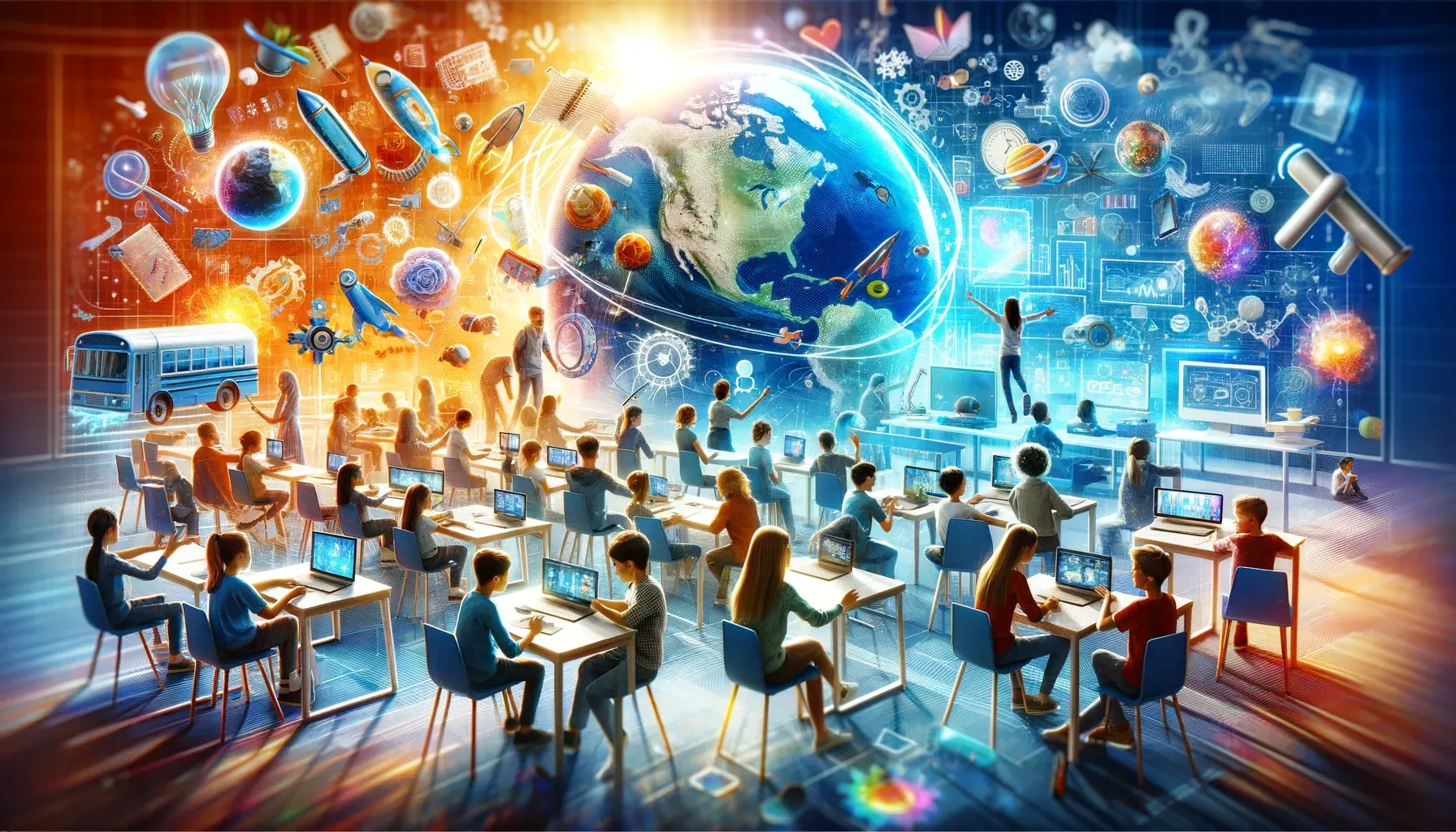
Shaping Futures: The Evolution and Impact of Educational Innovations
The realm of education, a dynamic and ever-evolving sector, stands at the forefront of societal evolution. The advent of new technologies, changing societal needs, and an ever-growing understanding of how we learn have collectively ushered in an era of educational innovations. This comprehensive exploration aims not only to illuminate these innovations but also to offer practical insights and solutions, making it an invaluable resource for educators, students, and policymakers alike.
The Dawn of Digital Learning
The digital revolution has transformed education, introducing tools and platforms that have redefined the learning experience. Virtual classrooms and online courses have democratized access to education, allowing learners from all corners of the world to access quality education. The integration of multimedia in teaching, from interactive simulations to educational videos, caters to different learning styles, making education more inclusive and effective.
Interactive and Adaptive Learning Technologies
The emergence of adaptive learning technologies marks a significant milestone in personalized education. These systems adjust the learning path based on individual student performance, ensuring that each learner receives attention tailored to their unique needs. Interactive tools like gamified learning experiences not only make education fun but also increase engagement and retention of information.
Revolutionizing Classroom Spaces
The physical space of classrooms is being reimagined to foster collaborative and interactive learning. Flexible seating arrangements, interactive whiteboards, and modular classroom designs encourage group work and active learning, breaking away from the traditional lecture-based model.
Blending the Boundaries with Blended Learning
Blended learning, which combines online educational materials with traditional in-person teaching, offers a balanced approach. It allows for self-paced learning while maintaining the benefits of face-to-face interaction, bridging the gap between digital and physical learning environments.
Innovations in Curriculum: STEAM and Beyond
The curriculum is evolving to include interdisciplinary subjects like STEAM (Science, Technology, Engineering, Arts, and Mathematics). This approach fosters creativity, critical thinking, and problem-solving skills, equipping students for the challenges of the modern world.
The Rise of Micro-Credentials
Micro-credentials and digital badges represent a shift in recognizing skills and learning. They offer learners the opportunity to gain specific skills and competencies in a shorter time frame, making education more flexible and career-oriented.
Educational Equity and Inclusion
Innovations in education are increasingly focusing on equity and inclusion. Efforts are being made to make education accessible to all, regardless of socio-economic background, learning disabilities, or geographical location. This includes the provision of resources for learners with special needs and the implementation of policies that promote inclusivity.
Global Classrooms and Cultural Exchange
The concept of global classrooms, where students from different parts of the world collaborate and learn together, promotes cultural exchange and global citizenship. This approach prepares students for a connected world, fostering understanding and tolerance.
Preparing Educators for the Future
Teacher training programs are evolving to equip educators with the skills needed to navigate the changing landscape. Professional development in digital literacy, innovative teaching methods, and classroom management is crucial in maximizing the potential of educational innovations.
Conclusion: The Future of Education
The landscape of education is shifting, marked by a blend of tradition and innovation. As we embrace these changes, the focus remains on creating a learning environment that is inclusive, adaptive, and reflective of the diverse needs of the global student population. The future of education is not just about technology; it's about creating a holistic ecosystem that nurtures, challenges, and inspires learners of all ages.




